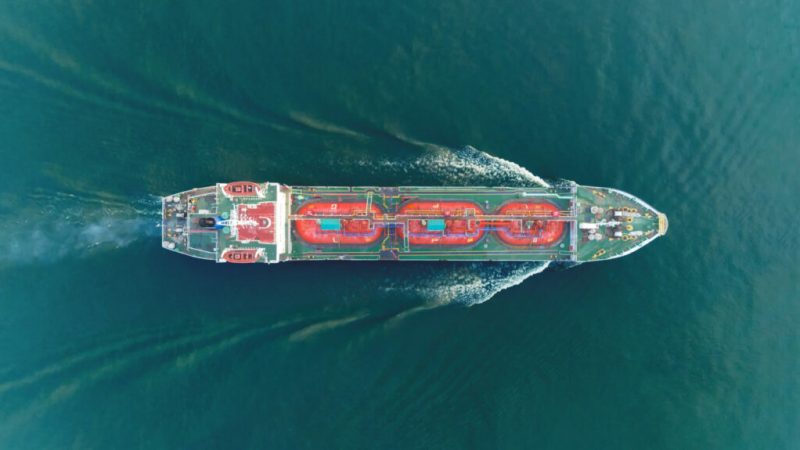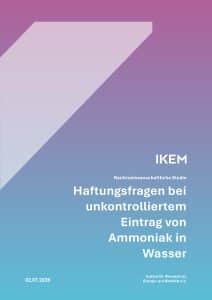Green ammonia is considered a promising option for decarbonizing shipping. However, a new study by the Institute for Climate Protection, Energy and Mobility (IKEM) shows that in order for ammonia to be used optimally as a maritime fuel, a more precise legal liability framework must be created.
Ammonia offers great potential as a climate-friendly maritime fuel, as no CO₂ is released during its combustion and established transport and storage infrastructures already exist. At the same time, its chemical nature makes high demands on environmental and health protection necessary. In the event of technical defects or human error, leaks may occur despite precautionary measures. The study therefore analyzes the consequences of such scenarios in terms of liability law and shows that there are currently no uniform international regulations governing liability for damage caused by ammonia.
“The use of ammonia as a marine fuel opens up new possibilities in maritime climate protection,” explains Friederike Allolio, co-author of the study and scientific officer at IKEM. “At the same time, the legal framework is still inadequate. In contrast to pollution caused by crude oil, damage caused by alternative fuels such as ammonia is not yet subject to any international agreement that provides for strict liability. This creates uncertainty for shipping companies and can make it more difficult for injured parties to enforce their rights in the event of an accident.”
The authors of the study therefore recommend including alternative fuels in existing or new international liability agreements. Judith Schäfer-Gendrisch, Managing Director of IKEM and co-author of the study, emphasizes: “The current regulations on liability in the event of damage essentially date back to a time when fossil fuels were the standard. In order to advance the energy transition in shipping, these structures need to be revised and opened up to alternative fuels such as ammonia – with clear liability limits and compulsory insurance.”
The study was developed in the sub-project “CF 11.3” of the joint project CAMPFIRE, funded by the Federal Ministry of Research, Technology and Space as part of the program “Change through Innovation in the Region” (WIR).







